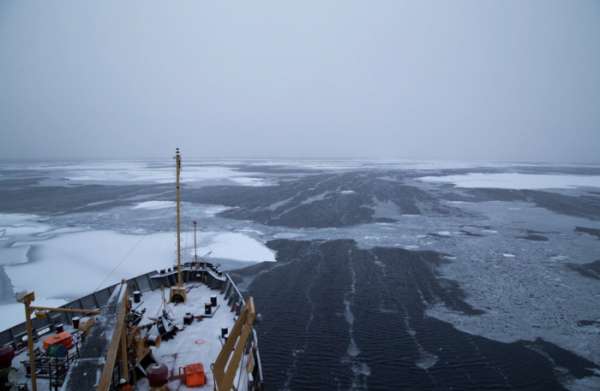A warming climate is causing a decline in sea ice in the Arctic Ocean, where loss of sea ice has important ecological, economic and climate impacts. On top of this long-term shift due to climate change are weather events that affect the sea ice from week to week.
The strongest Arctic cyclone ever observed poleward of 70 degrees north latitude struck in January 2022 northeast of Greenland. A new analysis led by the University of Washington shows that while weather forecasts accurately predicted the storm, ice models seriously underestimated its impact on the region’s sea ice.
The study, published in October in the Journal of Geophysical Research–Atmospheres, suggests that existing models underestimate the impact of big waves on ice floes in the Arctic Ocean.
Read More: University of Washington
A ship-based view of the Arctic Ocean in October 2015, when the ocean’s surface is beginning to freeze. In January, when the massive 2022 cyclone occurred, large sections of the Arctic Ocean would be covered in a layer of sea ice. (Photo credit: Ed Blanchard-Wrigglesworth/University of Washington)


